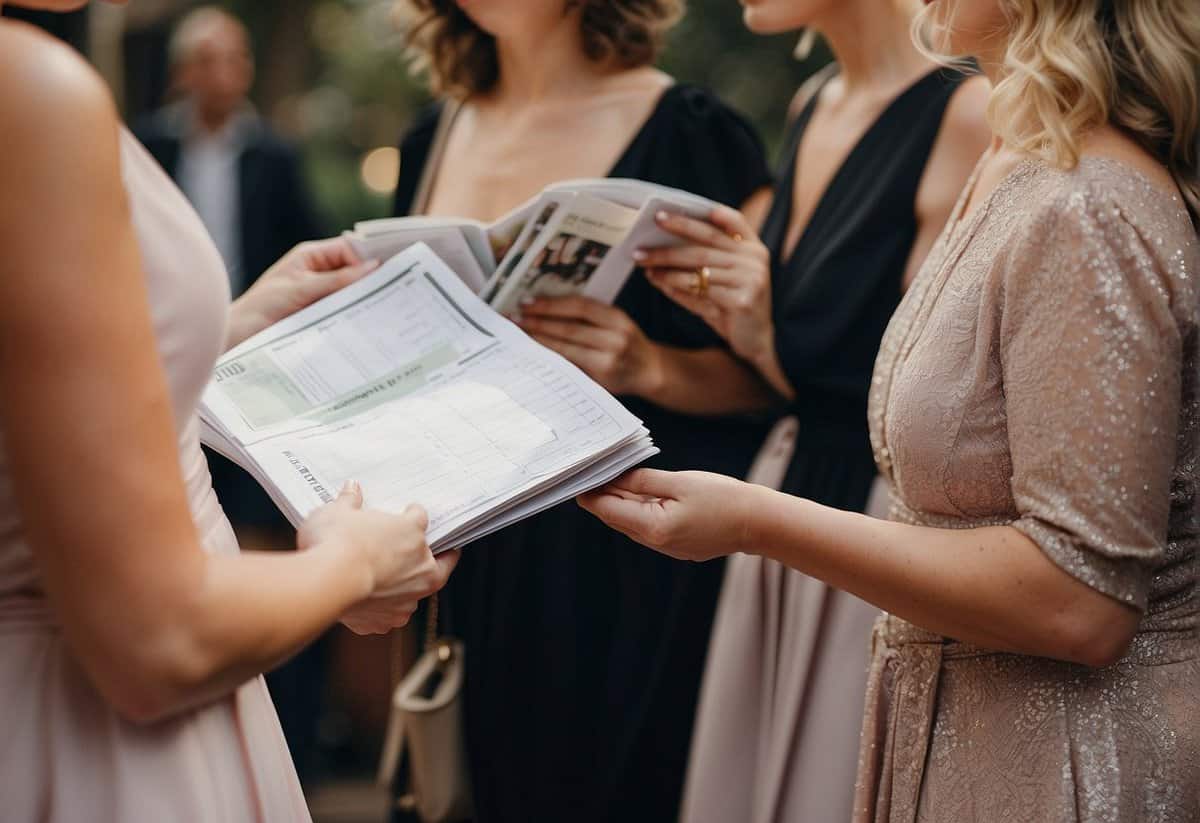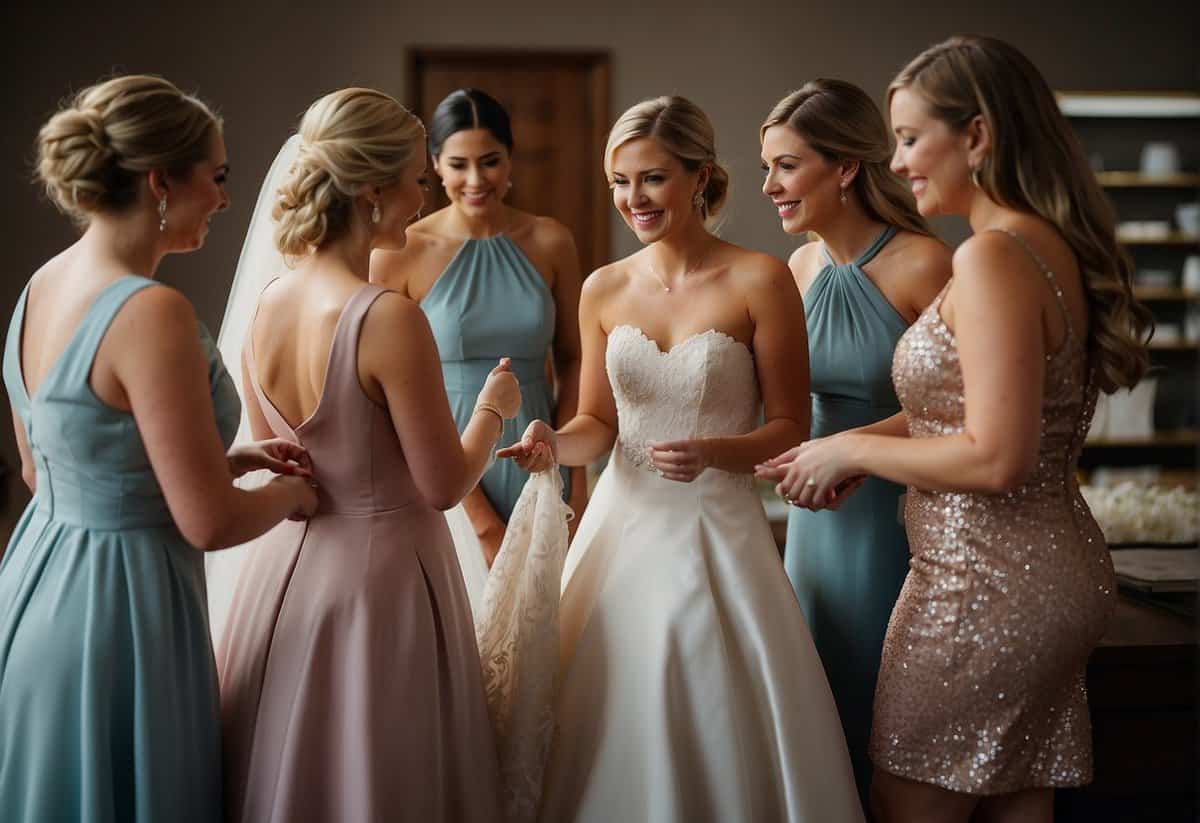Is It Normal for Bridesmaids to Pay for Everything? Understanding Wedding Etiquette
The role of a bridesmaid is often shrouded in tradition and can come with considerable responsibilities—both in time and finances. When you’re chosen to be a bridesmaid, it may feel both like an honor and a potential source of stress, especially when it comes to what costs you’re expected to cover. There’s a common question that many bridesmaids have: Is it normal for bridesmaids to pay for everything?

Understanding what financial obligations traditionally fall to bridesmaids can ease concerns and set the stage for clear and amicable discussions about wedding expectations. Typically, bridesmaids are responsible for their attire, travel expenses, and contributions toward bridal showers and bachelorette parties. However, these customs can be fluid and often depend on individual circumstances and cultural norms. It’s important for bridesmaids and the bride to have an open dialogue to avoid any unexpected surprises that could lead to financial strain or hurt feelings.
Key Takeaways
- Bridesmaids traditionally pay for their own attire and travel.
- Contributions toward parties and gifts are commonly shared among the bridal party.
- Open communication about financial expectations is crucial to avoid misunderstandings.
Understanding Bridesmaid Expenses

Navigating the financial commitments of a bridesmaid can be tricky. It’s important for you to understand what you may need to pay for as part of the bridal party.
Role and Responsibilities of Bridesmaids
As a bridesmaid, your primary role is to support the bride during the lead-up to and on the wedding day. This often includes participating in the planning of pre-wedding events and being present for fittings and dress selections. You’re not just a guest; you’re a part of the team that makes the day special.
Typical Expenses for Bridesmaids
The costs for bridesmaids can vary significantly but typically include:
- Attire: You’ll usually pay for your own bridesmaid dress, which can range from $100 to $300, not including potential alteration fees.
- Pre-wedding events: Often, bridesmaids contribute to the costs of the bridal shower and bachelorette party.
- Travel and accommodations: For weddings that aren’t local, you may need to budget for travel and hotel stays.
- Gifts: It’s custom to give gifts for the engagement, bridal shower, and wedding.
- Beauty expenses: Hair styling and makeup on the wedding day are sometimes covered by the bride, but it’s common for bridesmaids to pay for their own services, which can amount to around $250.
Maintaining open communication with the bride and the rest of the bridal party about expenses is key to ensuring that you can adequately budget for these costs without any surprises. It’s okay to discuss your financial limits and find a compromise that works for everyone involved.
Financial Etiquette for Bridal Party

Navigating the financial aspects of wedding planning can be a tricky affair, especially for first-time bridesmaids. Knowing who pays for what and how to manage your budget are crucial to ensure a smooth and enjoyable experience.
Who Pays for What
As a bridesmaid, your participation in the wedding party comes with certain financial responsibilities. Typically, you are expected to pay for your own attire, including the dress and any necessary alterations, shoes, and accessories. It’s standard for bridesmaids to also cover personal expenses such as travel and accommodation, particularly for a destination wedding.
Regarding events like the bridal shower or bachelorette party, costs often fall to the wedding party as a group. The maid of honor usually leads the planning and may also contribute a larger share, but all bridesmaids typically chip in to some extent. Gifts for the couple are traditionally bought by each bridesmaid as well.
Bridesmaid Typical Expenses:
- Attire (dress, shoes, accessories)
- Personal travel and accommodations
- Bridal shower and bachelorette party contributions
- Wedding gift for the couple
Managing Bridesmaid Budget
It’s important to approach your bridesmaid duties with a clear budget in mind. Start by listing all potential expenses. Often, couples may opt to help with certain costs, but you should be prepared for the following:
- Attire: Your most significant expense, often including dress, alterations, accessories.
- Travel: Consider flights, hotel stays, and local transportation for the wedding and related events.
- Gifts and Events: Factor in gifts for the couple, and any contributions to the bridal shower or bachelorette party.
To prevent any financial strain or misunderstandings, have open and honest discussions about finances within the wedding party early in the planning process. Communication is key when it comes to finance-related wedding etiquette. If costs are becoming overwhelming, it’s okay to discuss and find accommodating solutions together.
Additional Costs and Considerations

When planning to be a bridesmaid, be aware of expenses beyond the dress and bouquet. You’ll need to budget for travel, parties, and potential day-of services.
Travel and Accommodations
Travel: Your journey to the wedding venue can include flight or driving costs. Accommodations such as hotels or rentals may also be necessary, especially if the wedding isn’t local. A helpful tip is to check if the bride has arranged for a group rate at a nearby hotel, which can sometimes save you money.
Lodging: If you’re staying overnight, booking a hotel or sharing lodging with other bridesmaids can help distribute the expense. It’s best to book early to avoid last-minute price hikes.
Bachelorette Party and Bridal Shower
Bachelorette Party: Often, the bridesmaids split the cost of the bachelorette party, which may include food, activities, and entertainment. If you’re planning this event, gather input from the whole bridal party to set a budget that’s comfortable for everyone.
Bridal Shower: You might also pitch in for the bridal shower, whether that’s through a direct financial contribution or by providing gifts and decorations.
Day-of Wedding Preparations
Day-of Transportation: Ensure you account for how you’ll get to and from the wedding venue. Sometimes, the bride arranges transport, but you may need to plan your day-of transportation.
Hair and Makeup: If the bride hasn’t hired stylists for the bridal party, you could pay for your own hair and makeup. Some brides opt to cover these expenses, but confirm ahead so you can budget accordingly.
Remember to consider these costs early to enjoy celebrating with less financial stress!
Fashion and Accessory Costs

When preparing for their roles in the wedding, bridesmaids are often expected to cover the costs of their wedding attire and accompanying accessories. This section gives you a clear idea of the typical financial responsibilities associated with the fashion and accessory elements of being a bridesmaid.
Dress and Footwear
Your bridesmaid dress is a central part of the wedding’s visual theme and often reflects the desired color palette. Traditionally, it’s usual for you to pay for your own dress. The cost can vary widely depending on the style and where it’s purchased. Alongside the dress, bridesmaid shoes are also your responsibility. Opting for comfort as well as style is important, considering the long hours you may spend on your feet.
- Dress: Expect to spend anywhere from $100 to $300.
- Shoes: Budget from $50 to $150.
The Knot highlights that the bridesmaid’s attire, including dresses and shoes, is commonly paid for by the bridesmaids themselves.
Hair, Makeup, and Jewelry
The costs of hair styling and makeup are traditionally your responsibility as well, unless the bride decides to cover them as a gift. Jewelry may be provided, especially if the bride wants a cohesive look, but you may be asked to use your own pieces that match the wedding’s theme.
- Hair and Makeup: Services can range from $75 to $250.
- Jewelry: Costs can vary if you need to purchase specific items.
According to Martha Stewart, most often, bridesmaids cover their own hair and makeup for the wedding day, contributing to a unified aesthetic for the bridal party.
Remember to include potential floral accessories like corsages or hairpieces within your budget, as these are also commonly chosen to complement the wedding attire.
Frequently Asked Questions

When you’re a bridesmaid, it’s helpful to have a clear understanding of the financial responsibilities that come with the role. Let’s break down the common costs you should be prepared for.
Is it customary for bridesmaids to cover their own dress expenses?
Yes, typically bridesmaids pay for their own dresses, including any necessary alterations. Sometimes, brides might select the dress and expect bridesmaids to purchase it, or they may allow you to choose within a certain color scheme.
What are typical expenses bridesmaids are expected to pay for during the bachelorette party?
During the bachelorette party, bridesmaids often split the costs of lodging, travel, activities, and decor. The bride’s share is usually covered by the bridesmaids, though this can vary.
As a bridesmaid, should I expect to pay for my own hair and makeup on the wedding day?
This is a cost that can go either way. Sometimes bridesmaids pay for their own hair and makeup, while in other cases, the bride may choose to cover this as part of her wedding budget.
What financial responsibilities do bridesmaids have for the bridal shower?
Bridesmaids are often expected to contribute to the bridal shower costs, which might include decorations, food, and entertainment. It can also be a shared expense with other close friends or family members.
How much should bridesmaids budget for their role in the wedding?
There’s no one-size-fits-all answer, but being a bridesmaid can include expenses for the dress, travel, lodging, gifts, and the parties. It’s wise to discuss with the bride early on to set a realistic budget for your circumstances.
Are bridesmaids generally responsible for certain costs outside of the wedding day itself?
Yes, besides the wedding day, bridesmaids should budget for pre-wedding events like the engagement party, bridal shower, and bachelorette party, along with any related gifts.
